The Golden Retriever is an excellent companion and best friend of a hunter. He is good-natured, calm, excellently serves upshot game.
Golden Retrievers are smart hunters, impeccable family men and reliable friends, responsive to affection and kindness to themselves. A properly brought up Golden will willingly fulfill any master’s assignment and at the same time will not behave as if he had accomplished the greatest feat in the world. The only reward that the representatives of this breed expect for their own helpfulness is simple human attention, which for retrievers is much more valuable than the most exquisite delicacy.

The main prerequisite for the emergence of the breed was the eternal passion of the English aristocrats for hunting. In the 19th century, the main entertainment of British and Scottish Esquires was hunting games and shooting ducks. The venerable peers disappeared for days in the forests and swamps, boasting to each other with their trophies, guns, and, of course, dogs. However, if the gentlemen had complete order with the hounds, then four-footed hunters, able to find a shot quail in the heather thickets or swim after a duck that fell into the lake, were in great deficit. Commercial demand generated supply, and soon shaggy dogs with an unusual golden coat began to dissect through the valleys of Scotland.
The emergence of golden retrievers, as an independent breed, is usually associated with the name of Dudley Marjoribanks – a Scottish lord and part-time breeder-amateur. It was he who showed the world a completely new variety of the hunter dog, who was not afraid of water and who skillfully imported a padded bird. For a long time it remained a mystery, whose blood flows in the wards of the lord until, in the middle of the 20th century, the secret records of his studbooks were made public. As it turned out, the Goldens were given their genes by the Water Tweed Spaniel, Labrador Retriever, Bloodhound, and Straight-haired Retriever. At the same time, the first offspring were obtained as a result of mating a tweed water spaniel and a straight-haired retriever, which had a yellowish coat.
By the 20s of the last century, the breed was already quite popular not only in Europe but also among breeders of the New World. In addition, the USA and Canada have formed their own standards for the appearance of Golden Retrievers. So, for example, overseas, individuals with a more intense and dark coat color were preferred. The descendants of Scottish retrievers were brought to Russia after the collapse of the USSR, all from same America. The first purebred dog came to the territory of the Russian Federation in 1991.
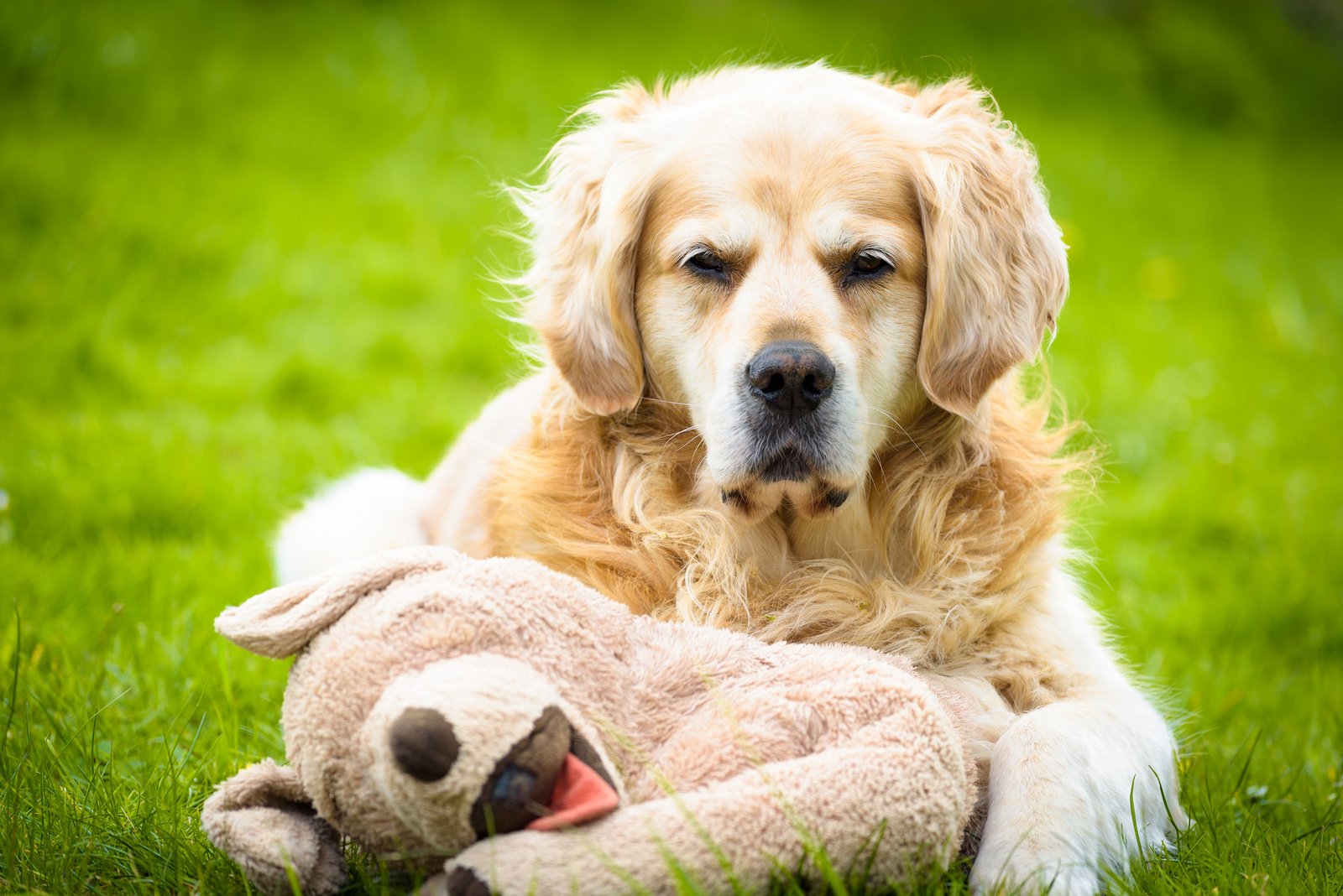
Golden Retrievers are moderately pumped-up handsome men with soulful eyes and luxurious iridescent hair. Goldens owe their recognition not so much to their own charm as to the efforts of marketers. The breed was especially actively promoted by American cinema. It is enough to watch a couple of comedy melodramas produced in the USA to understand: if an American family ever decides to have a dog, then in 9 cases out of 10 it will be a Golden Retriever.
The gender type in representatives of this breed is pronounced. The growth of an average boy ranges from 56-60 cm, and his weight can reach 41 kg. Girls are much lighter (average weight – 25-37 kg) and smaller than males (height – 51-56 cm).
Despite the presence of a single breed standard approved by the FCI, experts divide golden retrievers into three types:
- English;
- American;
- Canadian.
Representatives of the first group are the natives of Foggy Albion, with extremely massive legs and a wide skull. They are distinguished by lighter coat color, up to white. It is the English type that is most common in Europe and Russia. The range of American breeders wards is less impressive, but the “made in USA” Golden Retrievers boast a graceful posture and generally more elegant appearance. At the same time, the shade of their coat is somewhat darker than that of their British counterparts. A distinctive feature of Canadian retrievers is a thin physique with fairly tall stature. The coat color of the “Canadians” is even more intense and darker than that of the “Americans”.
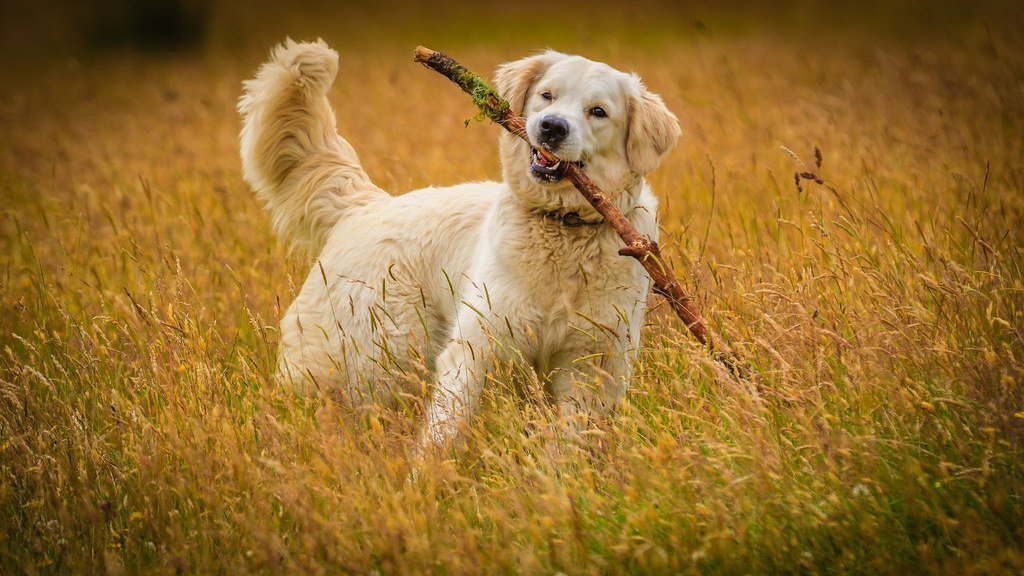
The skull is massive, convex-angular. The transition from forehead to muzzle is distinct and smooth. The occipital protuberance is smoothed, the cheeks are flat. The animal’s muzzle is long, even, gradually tapering from base to nose.
The lips are black, moderately dense, and dry. The upper lip hangs noticeably over the lower lip but does not go beyond the jaw. The lips completely hide the dog’s teeth and gums, forming small folds in the corners of the mouth.
The retriever’s jaws are strong and fairly wide, with a pronounced scissor bite. The teeth are white and large. The incisors are aligned.
The nose is massive, mobile, black. The nostrils are wide open.
The ears are moderately long, drooping, drooping along the cheeks of the animal. The base of the ear is wide, the tip is narrow, smooth, and rounded. Placement – slightly above the line of the eyes.
The eyes are large, deep-set, rounded. The Golden Retriever has a smart, friendly look. The color of the iris is from brown to dark brown. The eyelids are black, dry, close to the eyeball. An important condition: in a dog looking straight, the whites of the eyes should not be visible.
The neck is massive, set high, and of moderate length. The neck muscles are strong, developed, there are no folds and sagging.
Adults have a strong, tightly knit body with prominent muscles. The back of Golden Retrievers is straight, with a prominent loin and pronounced withers. The croup is massive, slightly sloping, rounded. The rib cage is of moderate width, sufficiently deep. The tucked-up belly line ends with a short and well-tucked groin area.
Moderately long tail, with a wide, thickened base and a tapered tip. Located below the back. In a calm golden, the tail is lowered, in an excited golden, it is raised to the level of the back.
The forelegs are well-muscled, dry, and straight. The shoulders are strong, with massive shoulder blades and the elbows laid back against the body. The shoulder angle does not exceed 90 °. The pasterns are strong, but short, set at a slight slope.
The hind legs are strong, well-muscled, well-spaced apart. The hock joint in Golden Retrievers is low and pointing backward. The front and hind feet are of medium size, rounded. The pads are massive, with short claws, the fingers of the animal are folded into a ball.
The coat of the Golden Retriever is very hard and water-repellent. The hair is quite thick and fits snugly to the body, hiding an abundant undercoat underneath. The structure of the coat can be straight or have a light wave, and its length varies depending on the part of the body. The longest coat is found on the chest, ears, body, back of all four legs, and the underside of the tail. Areas of the body with short hair are the head, feet, and front of the limbs.
All shades of gold are considered references, up to the transition to cream color. Lighter colors are acceptable for feathering on paws and tail suspension.
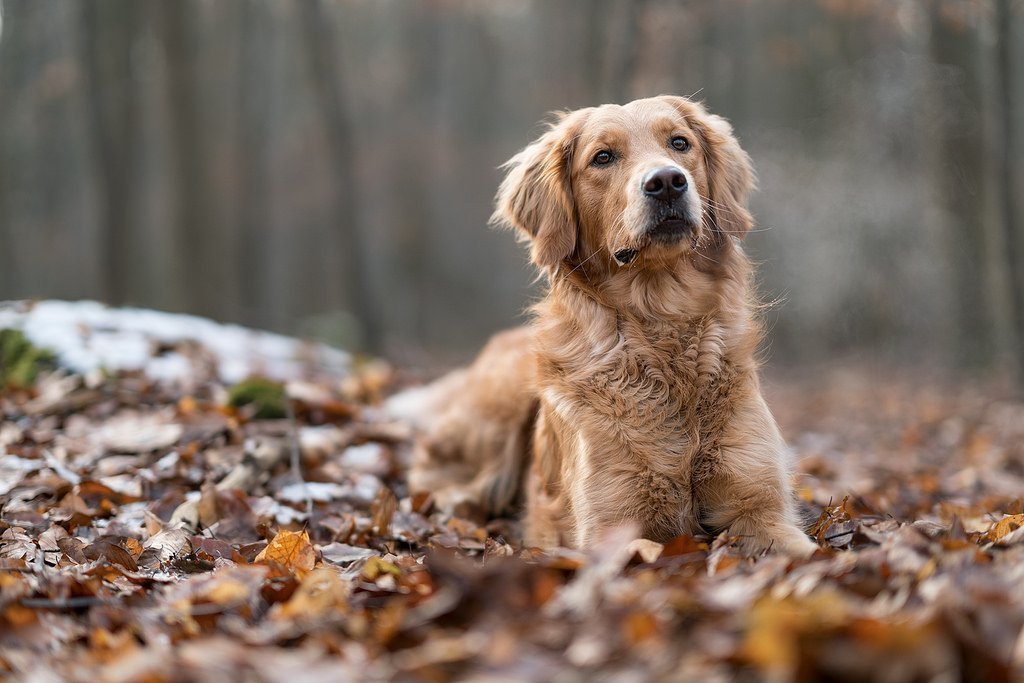
The list of breed defects includes any deviations from the characteristics prescribed by the standard. For example, a golden retriever shouldn’t have sparse and long hair, white stripes on the chest, and too light and close-set eyes. The following vices may become a reason to prevent an animal from competing:
- square case;
- long or too short legs;
- malocclusion and a skewed lower jaw;
- cryptorchidism;
- lips, eyelids, and nose, painted in any shade except black;
- a white “scarf” around the neck and blurs on the forehead;
- black coat color, as well as the presence of spots on it;
- drooping tail.
Angry or, conversely, cowardly individuals, animals with a small head, short ears, and small teeth will also not make a serious career.
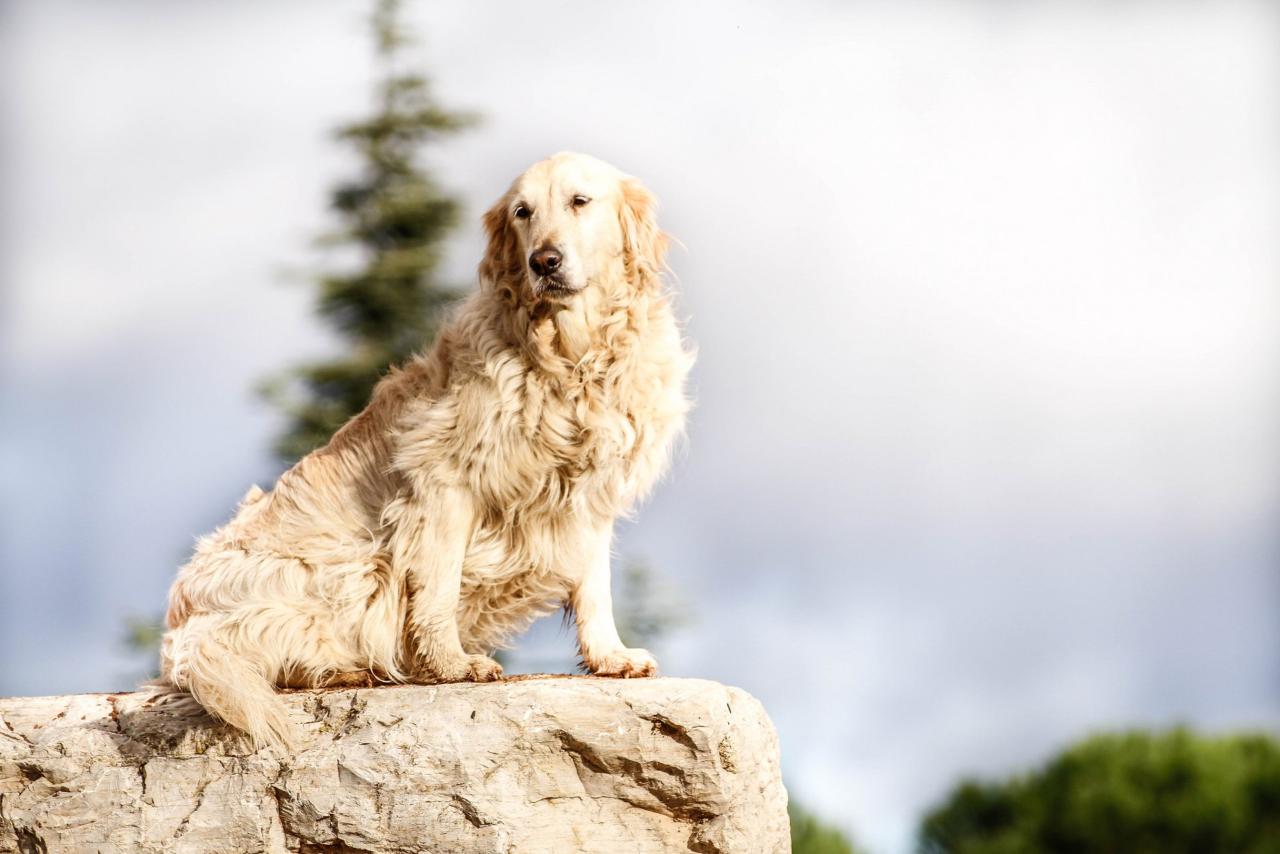
In terms of the number of enthusiastic reviews from owners, Golden Retrievers are almost ahead of all breeds. Indeed, only a convinced dog-hater can unearth the flaws in these good-natured intellectuals. As for ordinary animal lovers, their goldens literally captivate with their softness and phenomenal facial memory. If one of your friends treated your pet to a treat or entertained him with an unpretentious game, you can be sure that the retriever will not forget to add a fat “plus” to the karma of this friend.
Calm and balanced in everyday life, representatives of this breed try to keep their brand even in the most delicate situations. They are not at all conflicting and are ready to get along with any four-legged creature that does not show open aggression. Even in the tensest moments, the Goldens prefer to settle the matter peacefully. The Golden Retriever snarling and gripping its opponent with a stranglehold is something of a fantasy.
The breed is often recommended for keeping in families with children since, about the younger generation, animals are as correct and patient as possible. Of course, trusting a dog with babies is not the smartest decision, but playful three-year-olds can be left to her. Golden Retrievers are primarily human-oriented. It is with him that they want to go for walks, share their joys and sorrows. For this reason, Goldens are often attracted to active Canis therapy. Shaggy “antidepressants” are happy to contact patients who are in a state of prolonged depression, charging them with vivid emotions and gradually returning them to the joy of existence.
Golden Retrievers are typical sanguine people who are not at all characterized by such traits as suspicion and caution. Strangers in these simple-minded handsome people cause curiosity and burning interest, so if golden lives in your house, accept the fact that he will not work as a guardian of the territory and material values.
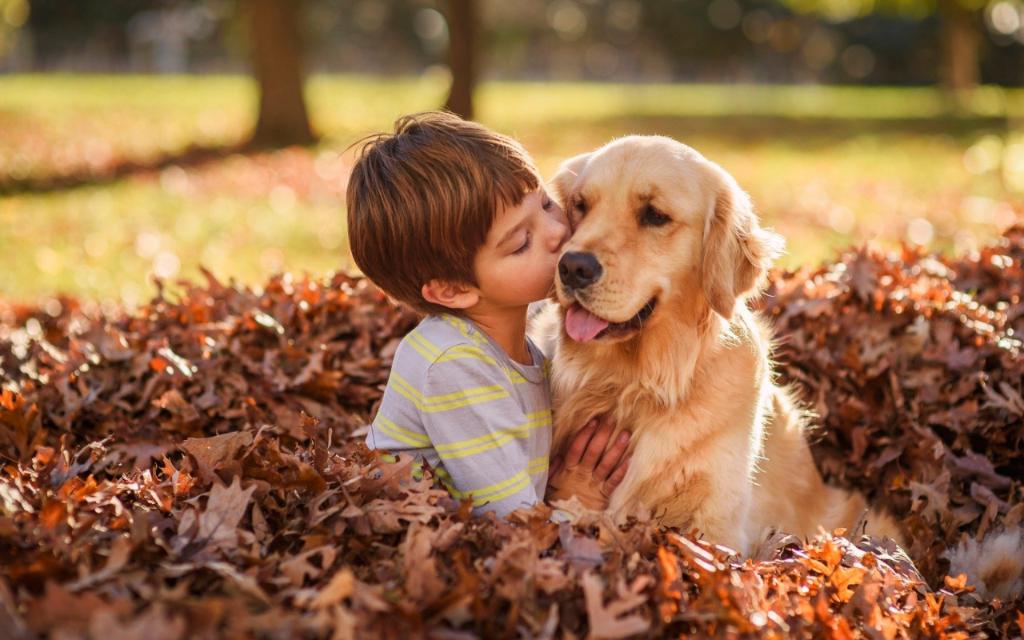
The nature of golden retrievers is not deprived of intelligence and memory, so any lessons the dog grasps on the fly. The first thing to start training a Golden Retriever puppy with is obedience: the animal must understand what is permissible for him and what is not. Do not give in to the momentary desire to remove all prohibitions and pamper your baby, so to speak, as an exception. Puppy pranks will quickly cease to seem touchingly funny after the 40-kg dog begins to practice them.
In the first months of life, little retrievers try to taste the objects around them, so try to convey to the pet the meaning of the “Fu!” Command as soon as possible. Those who see a future hunter in the Golden Retriever will have to go outdoors more often. The dog will be able to learn how to find and bring a hit bird only when he sees it live. At first, the skill is practiced on rags and dummies: a homemade scarecrow is thrown at the puppy to make him want to grab an unfamiliar thing and show it to the owner. Then they smoothly move on to retrieving and participating in the hunt.
Half-year-old puppies can be taught to swim and whistle submission, and it will be better if a pro does this. 12 months is the optimal age to start training a dog’s endurance since on a hunt it often has to sit in ambush so as not to frighten away the game. The command “Lie down!” in such cases does not apply. It is enough that the pet will sit next to you. Exercises to train memory are considered very valuable since the golden retriever is not always able to find games by smell alone.
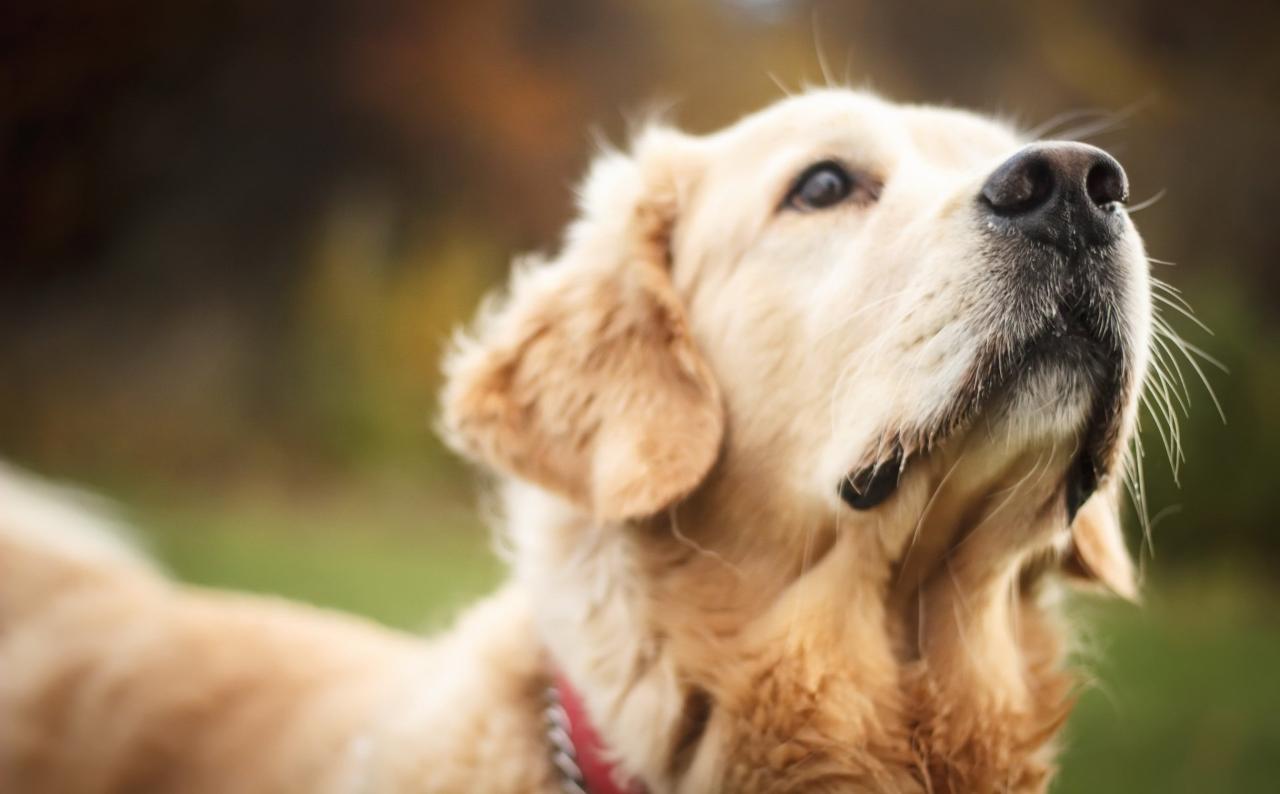
Even though hunting has always been the main specialization of golden retrievers, it is not necessary for today’s owners of these shaggy “campaigners” to take up a gun. Tedious races through forests and swamps can be easily replaced with long walks in parks and meadows. It’s great if you take your dog to a country house, away from the freeway, where he can run freely. Just do not try to turn your pet into a mongrel and settle him in a booth: the retriever will not appreciate your impulse and will fall into despondency, so take the dog into the house and do not deprive her of her own company.
Keeping a Golden Retriever in an apartment is a kind of test of the owner for responsibility and hard work since the animal will have to compensate for the lack of free space, physical activity, and impressions with regular promenades in combination with physical activity. Due to their sociable nature, golden retrievers do not cope well with loneliness. Animals throw out their insecurity and fear on the surrounding objects: they gnaw furniture and wires, spoil their shoes. The worst punishment the owner can think of for Golden is to lock him in four walls and quietly go to work. For careerists, workaholics, travelers, and other busy individuals, the Golden Retriever as a pet is an unacceptable option.
What not to do about a Golden Retriever:
- allow children to sit on a grown dog since the pressure created by the child’s body can cause the back of the animal to bend;
- stroking the puppy on the head and putting the collar over his head, which leads to the incorrect formation of the set of the ears;
- pull the baby by the paws or try to lift him, fixing his hand under the chest.
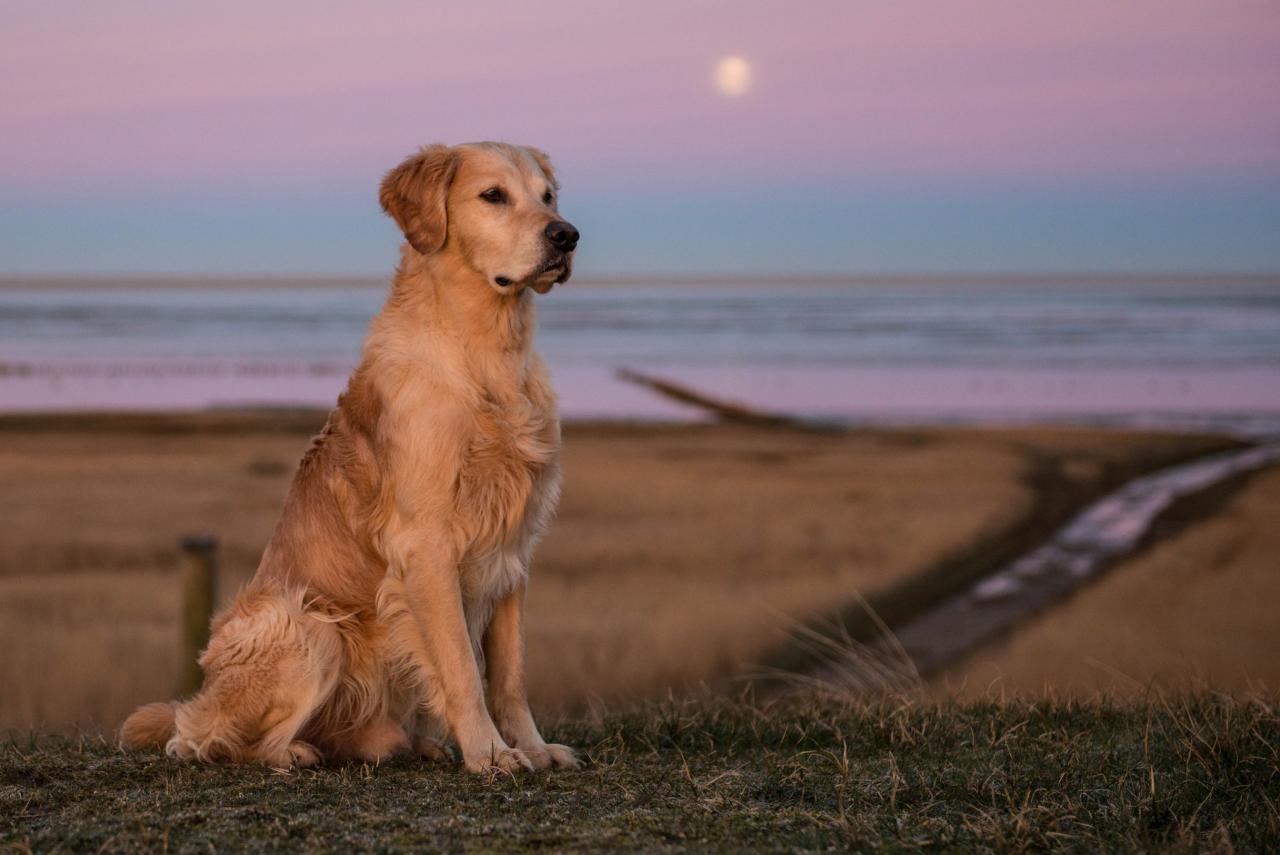
The main problem for the owner of the golden retriever is the coat of his pet. During the molting period, golden leaves fluffy marks wherever possible, and daily combing does not help much here. There are only two ways out of this situation: do not buy a golden retriever at all, or put up with this peculiarity of the dog and purchase a powerful vacuum cleaner to clean up shreds after it from time to time.
The shedding retriever is combed out twice a day using a brush and mitt to collect the hair. A dense undercoat is removed with a furminator or slicker. To remove the dog smell from the coat, you can moisten it with a solution prepared according to the following recipe:
- mix a glass of water with a glass of vodka;
- add 2 tablespoons of vinegar essence;
- add 1 teaspoon of salt and shake.
In the periods between molting, the animal’s coat does not require such careful care, but a couple of times a week it will still have to be combed over the dog’s “fur coat”. A bath for the Goldens is arranged once a month and this is quite enough. After bathing, you can shorten your pet’s coat slightly. The hair is trimmed from the bottom up, starting from the neck. It is not forbidden to walk with scissors on the feathers on the paws, and “pants” of the dog. The hair growing between the toes and at the base of the tail should also be trimmed regularly.
Most Golden Retrievers have no problems with their eyes and ears, so a standard weekly check-up is enough for them. If dirt has accumulated in the ear funnel, it can be removed with a napkin and boiled water. Chilled tea leaves are good for treating the eyes. Brushing Golden’s teeth is a laborious but necessary process. If you cannot classically clean the oral cavity, you can entrust this matter to dry food or special treats, whose solid particles function as abrasives that “erase” plaque.

Golden Retrievers can be fed with natural products or dried. In the first case, about 50% of the diet should come from animal protein, that is, meat. The daily rate of the product is calculated as follows: 10-20 grams of meat per kilogram of dog weight. The remaining half of the retriever’s daily “menu” is made up of cereals and vegetables.
Meat for the dog is selected low-fat, with a large number of veins and cartilage. Beef, lamb, rabbit, and turkey are ideal. By-products are also not prohibited, but due to the digestive upset that they can provoke, they are introduced into the diet gradually and little by little.
Important: Golden Retrievers are fed after a walk, not before.
It is better to cook thick porridge from rice and buckwheat, to which you can add stewed vegetables. Pumpkin, carrots, cabbage, turnips, and beets are especially useful for golden retrievers. In season, early greens are mixed into the porridge. It is not forbidden to include in the diet of an adult dog and fermented milk products – kefir, yogurt, cottage cheese. Puppies, whose skeleton is still being formed, need more calcium, therefore, up to 4 months old, the diet of small goldens necessarily includes milk (whole and in the composition of porridge).
Approximate daily menu for a 4-month-old baby: 300 g of meat, 100 g of fruit and vegetable slices or vegetable stew (apple + carrot), 500 g of porridge in milk.
Up to 4 months old, golden retriever puppies receive food 5 times a day. Starting from 5 months, babies are transferred to four meals a day. Six months old adolescents eat three times a day, and by 8 months puppies completely switch to two meals a day.
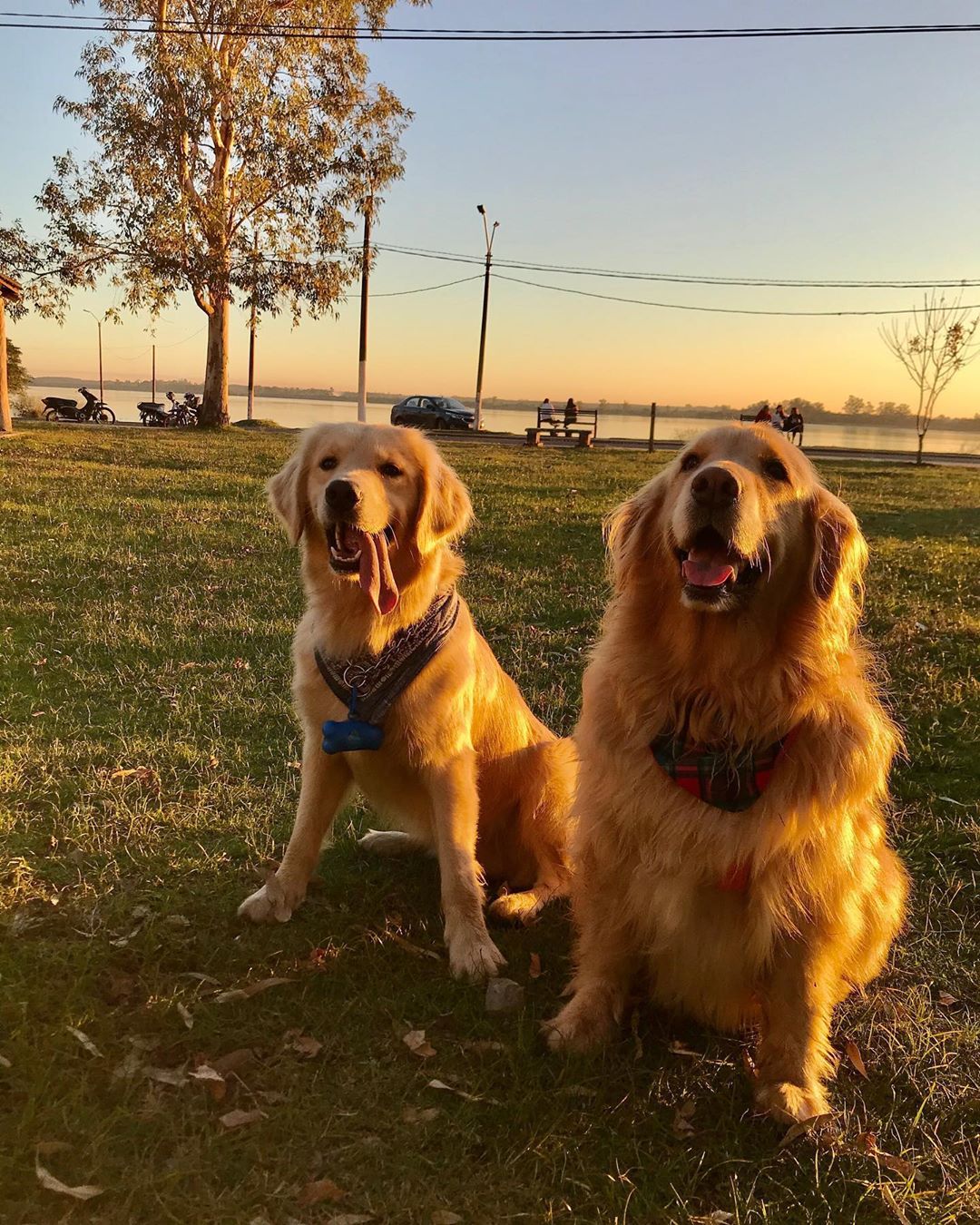
Golden Retrievers are walked for at least two hours a day. In this case, it is not at all necessary to observe the same duration of walks. For example, the morning promenade can be shortened to 30 minutes, and the evening one, on the contrary, can be increased to one and a half hours. If the animal lives in an apartment, then up to four months it should not be allowed to go down and up the stairs on its own. Take the puppy for a walk in your arms and in the same way, bring him into the apartment.
Babies are taken outside more often than adults to train them to use an outdoor toilet. At first, excursions are conducted in park areas, gradually moving to the busy city streets. The dog mustn’t fall into a stupor at the sight of people and the sounds of public transport, therefore, the more often it encounters everyday phenomena of the urban environment, the sooner it learns to perceive them adequately.
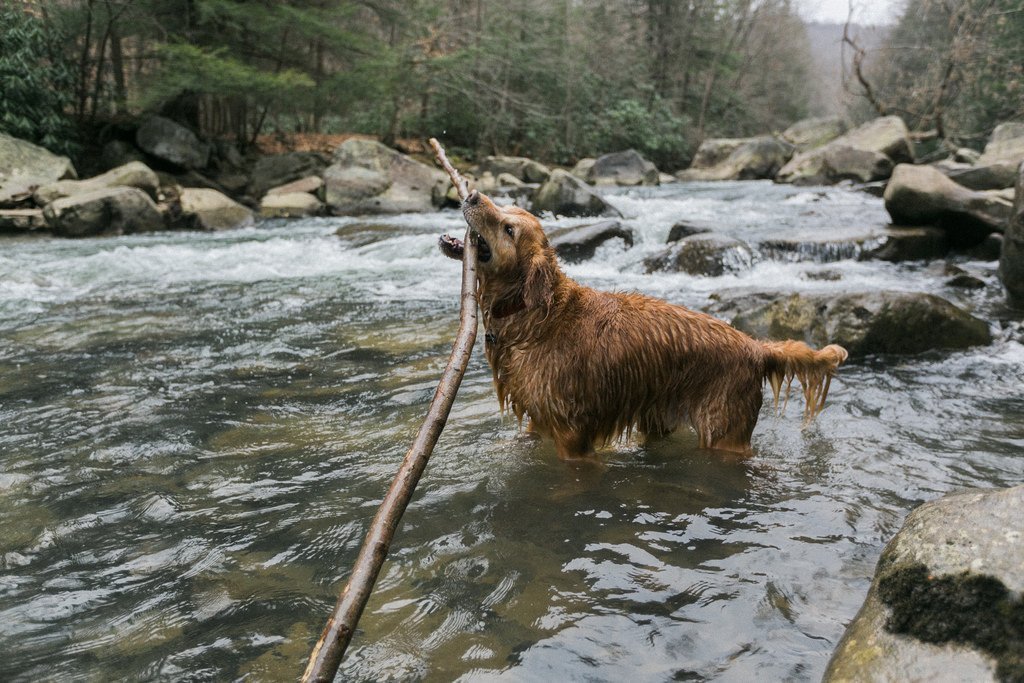
Golden Retrievers love water treatments, so while walking, the puppy will certainly try to measure the depth of the first puddle that comes across. Accordingly, if you notice a pothole filled with water on the way, it is better to prevent the animal’s impulse by taking it by the collar and strengthening the ban with the command “No!” If the moment is missed, and the pet is already swimming in a puddle with might and main, shout at him (the same command “Fu!” Will do) and throw a leash at him. Do not go into the water and try to pull the dog out. Wait until she obeys the command herself and praise her for her obedience. But you should not give up swimming in open reservoirs. Swimming in a pond, river, or lake for a dog is gymnastics and psychotherapy in one bottle, so when going on a weekend in nature, feel free to take a golden with you.
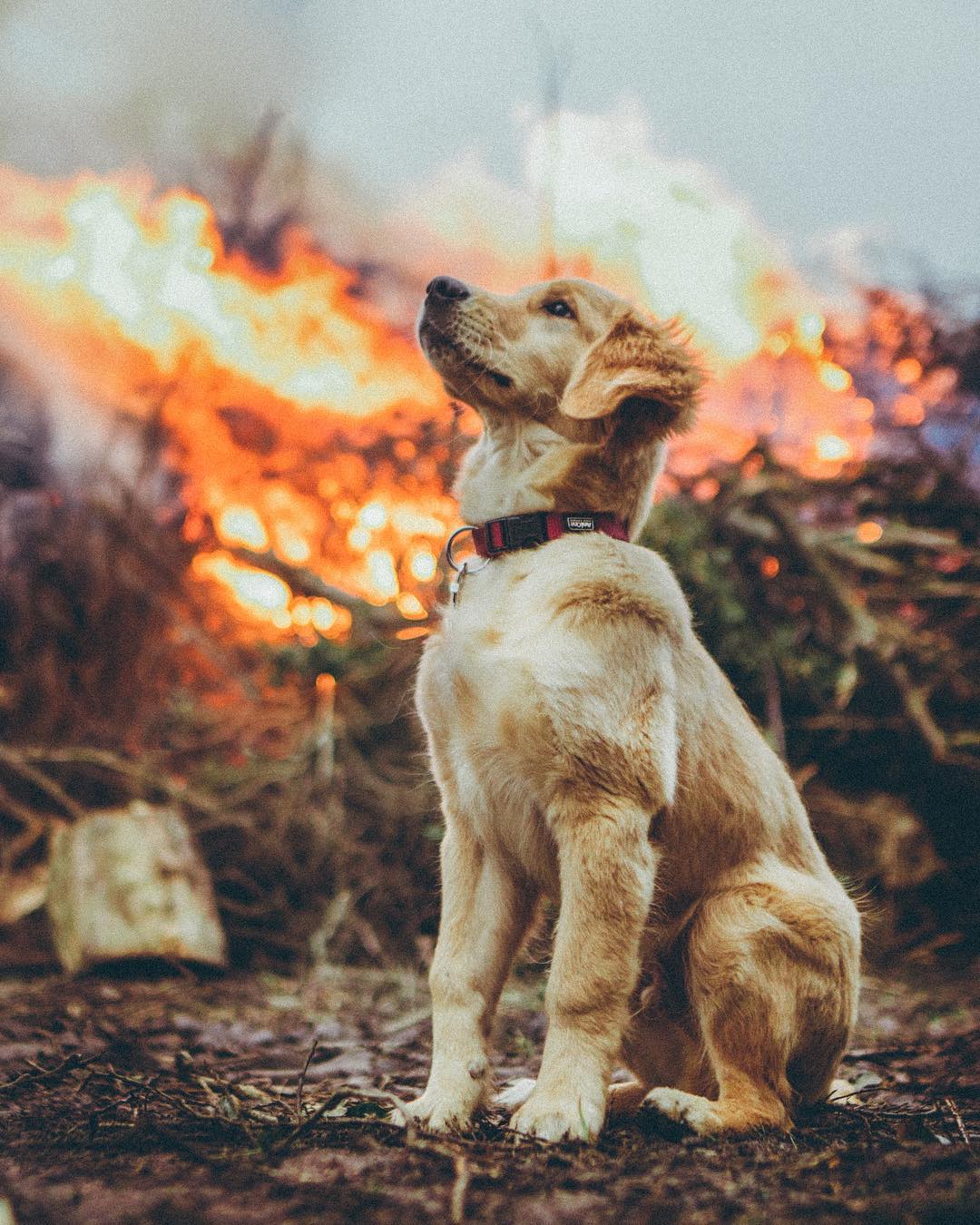
Goldens are one of the most “profitable” pets for veterinary clinics, and their owners are one of the most frequent visitors. The main diseases of the Golden Retriever, mentioned in almost every reference book, are retinal degeneration and hip dysplasia. However, in fact, there are about a dozen different ailments behind the breed. For example, dogs are often diagnosed with cancer and heart diseases, hypothyroidism, atopic dermatitis, von Willebrand disease, and other dangerous ailments.
In addition, Golden Retrievers are prone to obesity. Against the background of more serious diseases, the excessive weight seems to be a harmless trifle, although, in reality, everything is not so rosy. Animals that have gained extra pounds live less, and individuals with overweight suffer more from the constant companion of all elderly dogs – arthritis. A danger is concealed in themselves and sick teeth of the animal. An ordinary abscess on the gum or an inflamed tooth can “spread” the infection to all organs of the retriever, eventually dropping it to dog paradise.
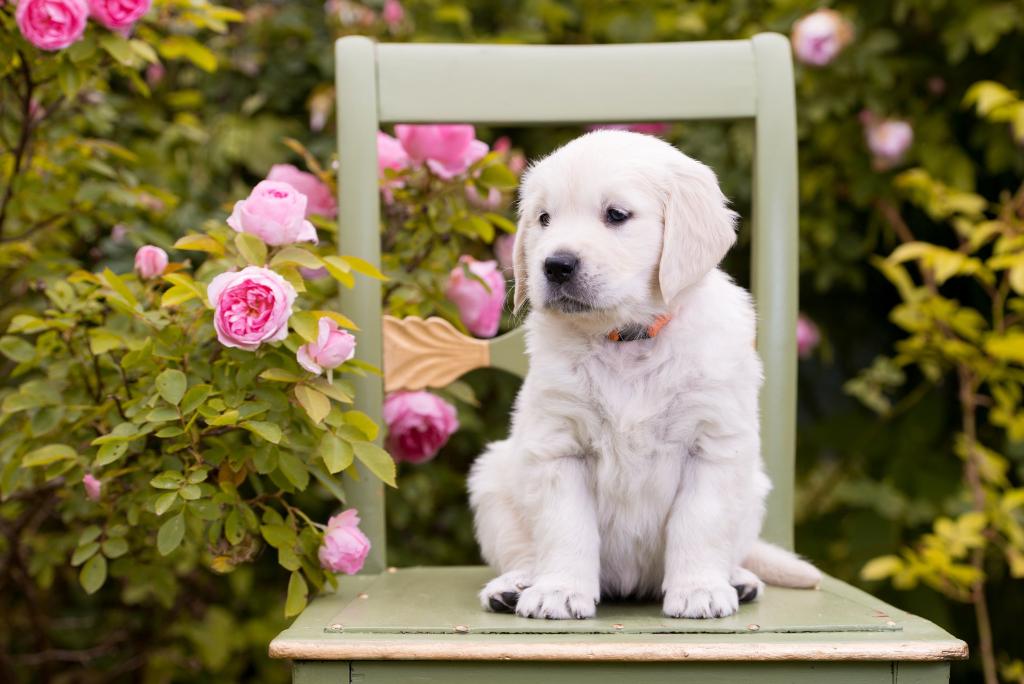
How to choose a puppy?
- Going to the kennel, arm yourself with a printout of the breed standard, or better, take with you a specialist who will help you with choosing a puppy. If this is not possible, contact any of the kennel clubs, where a reliable breeder will be recommended to you.
- Puppies inherit from their parents not only the appearance and hunting qualities but also the type of temperament, therefore, in a conversation with the seller, insist on getting to know the mother and father of the babies. If such favor is denied to a buyer, there is a high probability that the pedigree of the dogs is so-so.
- For those who see a future family friend in a golden retriever, it is better to acquire females that are more agreeable and affectionate. Golden males are distinguished by their bright charisma, but their character is more serious and firm. Besides, boys are much smarter when it comes to hunting.
- The temperaments of American and European retrievers differ significantly – consider this fact when buying a puppy. Goldens from the USA is more energetic and emotional. Indigenous “Europeans” are noticeably more phlegmatic and do not sin with hyperactivity.
- Responsible breeders who value their own name have their puppies well-groomed, vaccinated, and treated with anthelmintic agents.

